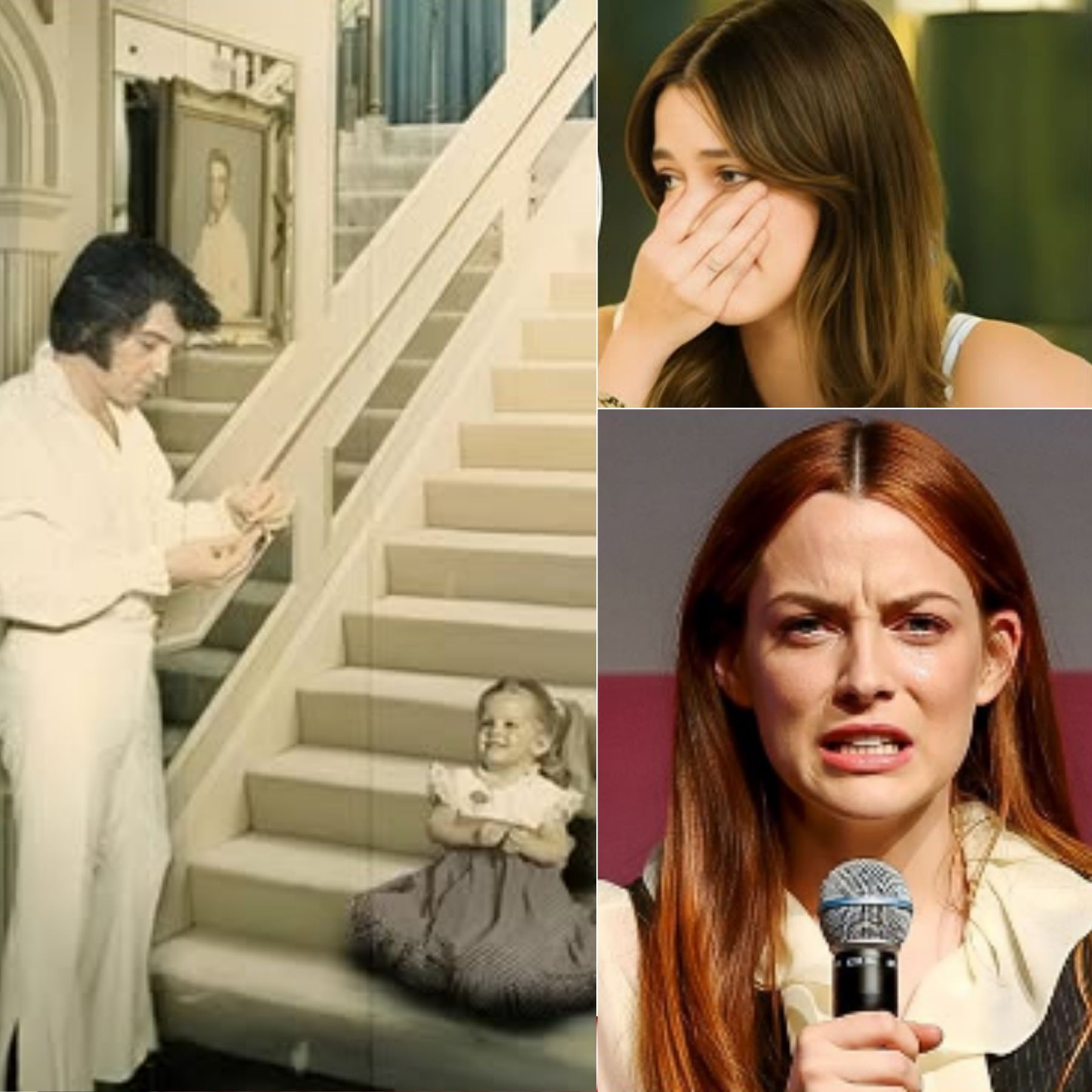
07 October 2025
Riley Keough Breaks Silence: The Dark Secrets Behind Elvis’s Granddaughter’s Life Unveiled In a stunning revelation that has sent shockwaves through Hollywood, Riley Keough, the granddaughter of the legendary Elvis Presley, has finally opened up about the tumultuous life she has led—one filled with secrets, chaos, and tragedy. At 36, Keough has emerged from the shadows of her family’s storied past to share a harrowing account of her upbringing, which included a shocking arrest at the tender age of 15, living with Michael Jackson at Neverland Ranch, and grappling with the emotional aftermath of her brother’s tragic death. Keough’s candid revelations came during an appearance on the popular podcast “Call Her Daddy,” where she laid bare the struggles that have shaped her life and career. The daughter of Lisa Marie Presley and musician Danny Keough, Riley was thrust into the spotlight from birth, with over 200 paparazzi camped outside Santa Monica Hospital to capture her arrival. Even her birth weight—just 7 pounds and 2 ounces—made headlines across the globe, setting the stage for a life that would be anything but ordinary. The chaos only intensified when Riley was arrested as a teenager for breaking into a house she thought was hosting a party. The incident, which could have derailed her budding career, remained a closely guarded secret until now. Keough recounted calling her mother from jail, a moment that sparked a furious response from Lisa Marie, who grounded her for three months. “I never saw my mug shot,” Riley shared, underscoring the lengths to which her family went to protect their image. Riley’s upbringing was further complicated by her childhood experiences at Neverland Ranch, where she spent significant time with Michael Jackson. Although she fondly referred to him as “Daddy Michael,” she later learned of the dark allegations surrounding the King of Pop. “I had no idea about the abuse allegations; to me, it felt like home,” she admitted, revealing the disconnect between her childhood innocence and the disturbing realities of her surroundings. The emotional weight of her family’s struggles didn’t end there. Keough became her mother’s caretaker as Lisa Marie battled addiction, learning to navigate the treacherous waters of substance abuse at a young age. She recalled moments of crisis, including having to call 911 after finding her mother unconscious. “I learned to hide the car keys and flush pills down the toilet,” Riley recounted, illustrating the burden she carried as a child forced to grow up too fast. Despite the chaos, Riley carved out a successful career in modeling and acting, facing the relentless scrutiny that comes with being a “nepo baby.” She has openly acknowledged the privilege her last name afforded her, yet she also faced harsh criticism and skepticism about her talent. “I had to be better than everyone else,” she stated, reflecting on the pressure to prove herself in an industry that often dismisses the offspring of legends. Her journey has not been without its triumphs. Riley’s recent role in the Amazon Prime series “Daisy Jones and the Six” has garnered critical acclaim, earning her an Emmy nomination and silencing some of her detractors. “I trained for six months, singing every note myself,” she revealed, showcasing her determination to step out of her family’s shadow and establish her own identity as an artist. As if navigating her own career wasn’t enough, Riley has also found herself embroiled in a bitter legal battle over her mother’s estate following Lisa Marie’s untimely passing in January 2023. The feud with her grandmother, Priscilla Presley, over the $100 million Elvis estate has played out publicly, with Riley emerging as the sole trustee amid accusations and emotional turmoil. “It felt like survival,” she admitted, reflecting on the toll the battle has taken on her mental health. Through it all, Riley Keough has emerged as a resilient figure, determined to honor her family’s legacy while carving her own path. Her willingness to share her story is a testament to her strength and vulnerability, proving that even those born into fame must confront their own demons. As she continues to navigate the complexities of her life, one thing is clear: Riley Keough is ready to face the world on her own terms.

